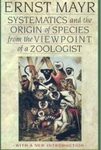![Krakatau Krakatau]()
Click to have a closer look
About this book
Contents
Customer reviews
Biography
Related titles
About this book
In 1883 all plant and animal life was obliterated by a massive eruption on the island of Krakatau in the Sunda Strait near Java, which destroyed two-thirds of the island. After the eruption, Krakatau provided a unique opportunity to study the colonization of a sterile area by plants and animals across a sea barrier and the gradual incorporation of the newcomers into the developing ecosystem. Now, just over a hundred years later, the island is covered in secondary forest, which supports over 200 species of plant, 70 species of vertebrate, and thousands of invertebrates. Thornton's comprehensive account tackles many of the questions and controversies surrounding the eruption and its aftermath.
Contents
One touch of nature; the day that shook the world; the great enigmas of 1883; why Krakatau?; life returns; the "Krakatu Problem"; arrival; Krakatau's child; community enrichment; divergence of the forests; life on an active volcano; Krakatau and island biogeography; community assembly - lottery or jigsaw puzzle?; the human presence, past and future.
Customer Reviews
Biography
Ian Thornton was Emeritus Professor of Zoology, La Trobe University, Bundoora, Australia.
By: Ian Thornton
346 pages, 28 b/w photos, line illus, tabs, maps
Exciting, information-rich...Thornton, an accomplished biologist, presents a detailed history [of Krakatau] replete with fascinating details...[This book will] provide hours of truly pleasurable reading and also clear and deep insights into the fascinating biology of islands, the struggles to construct comprehensive theories for difficult processes and the techniques for preserving species diversity. -- Lawrence B. Slobodkin Nature It's sure to become a classic for biogeography, as well as being a testimonial to the resilience of life. New Scientist [A] fascinating book...I could not put it down. This extraordinary text is most certainly not just another volcano book. Ian Thornton's knowledge of his subject is daunting. He describes the events leading up to the awesome eruption in 1883 that left more than 36,000 people dead, destroyed over 160 towns and villages, and wiped out a whole island. He has gone back to original ships' logs and scientific papers and has translated them himself to present a highly readable, informative and gripping story...Informative as it is, the book has all the intrigue and suspense of a good 'whodunit'...[A] thoroughly good read. -- Hazel Rymer Times Higher Education Supplement [An] uncommonly well-written book...This scholarly and lucid book summarizes nearly all that is known concerning the history, geology, and natural history of Krakatau, both before and after the cataclysmic eruption of August 1883...Thornton, who has focused his professional attention on Krakatau for the last twenty years, is both entertaining and informative in synthesizing these events and explaining their biological significance in the context of ongoing conceptual debates in ecology and biogeography. -- Ted J. Case Science Thornton offers us a fascinating, dynamic picture of island colonization and the step-by-step assembly of a tropical ecosystem. -- Jonathan Kingdon Times Literary Supplement [This book is] sure to become a classic for biogeographers, as well as being a testimonial to the resilience of life. New Scientist It is because of the detailed picture of succession, disturbance, habitat relations and of all manner of ecological interactions that Krakatau provides its unique contributions to island theory. It demonstrates the sorts of ecological parameters that island models must accommodate in order to be applicable to 'proper' islands. This book is thus an important contribution to the literature on Krakatau--and it ably communicates the author's great enthusiasm for this enigmatic, notorious group of islands--but it also constitutes a study of general ecological value, I hope that it is widely read. -- Robert J. Whittaker Trends in Ecology and Evolution



































